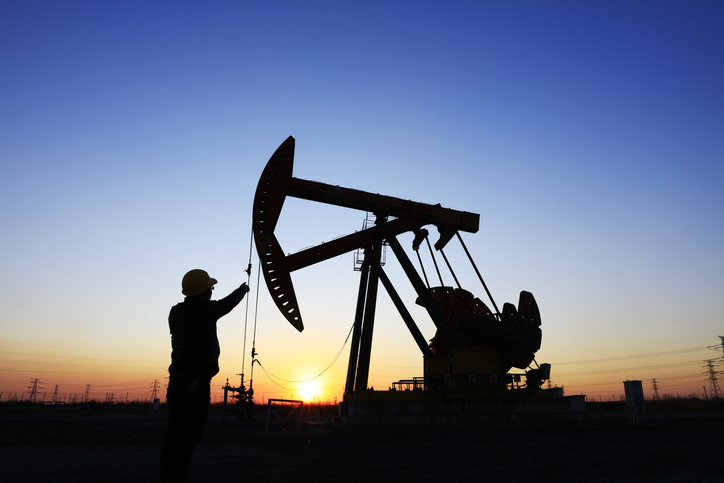Oil and gas operations are essential to Utah’s economy, providing over $15 billion in economic, trade, and job benefits. However, they also pose significant environmental risks. Spills, leaks, and emissions can lead to soil and water contamination, affecting both businesses and local communities.
Preventing pollution is not only a regulatory requirement but also a crucial step in reducing liability exposure and ensuring long-term sustainability. Implementing best practices for pollution prevention allows oil and gas companies to minimize risks while maintaining operational efficiency. Combined with proper oil and gas insurance, these measures can help businesses protect their financial stability, comply with environmental regulations, and respond to unforeseen incidents.
Key Pollution Risks in Oil and Gas Operations
Oil and gas operations involve multiple stages, from drilling and production to processing, storage, and distribution. Each phase presents unique pollution challenges that businesses must address.
During drilling and production, spills, improper waste disposal, and chemical leaks can contaminate soil and groundwater. Equipment malfunctions, leaks, or blowouts may also cause environmental damage, leading to costly cleanup efforts and regulatory penalties. Businesses must take proactive steps to manage drilling sites and prevent these risks.
Processing and storage present additional challenges, as improper containment and tank leaks can result in hazardous emissions and groundwater contamination. Facilities handling oil and gas must ensure their equipment meets safety standards to prevent accidental pollution. Storage sites, in particular, require ongoing monitoring and secondary containment measures to reduce the likelihood of leaks.
In the transmission and distribution phase, pipelines play a critical role in transporting oil and gas, but they are vulnerable to leaks, corrosion, and accidental damage. Without proper maintenance, pipeline failures can result in large-scale contamination, affecting both the environment and surrounding communities. Regular inspections and integrity testing can help businesses detect potential issues before they lead to environmental hazards.
Best Practices for Preventing Pollution
Utah oil and gas businesses can mitigate pollution risks by adopting proactive strategies and following industry best practices.
- Conduct routine maintenance and inspections: Regular equipment checks and pipeline monitoring help identify potential failures before they result in spills or leaks.
- Develop spill prevention and response plans: Businesses should have emergency response plans in place, including spill containment systems and employee training on immediate action procedures.
- Implement waste management strategies: Proper disposal of drilling fluids, wastewater, and hazardous materials reduces the risk of contamination.
- Ensure environmental compliance training: Employees should be well-versed in federal and state environmental regulations to ensure proper handling of hazardous substances and prevent compliance violations.
- Use advanced drilling technologies: Modern exploration methods, such as remote sensing, 3-D and 4-D seismic imaging, and GPS, help locate oil reserves with fewer exploratory wells. Slimhole drilling rigs and directional drilling reduce land disturbance, minimizing the environmental impact of oil extraction.
How Oil & Gas Insurance Helps Mitigate Risks
Even with strong pollution prevention measures in place, oil and gas businesses still face the risk of spills, leaks, and environmental damage. When these incidents occur, the costs can be significant, from cleanup expenses to regulatory fines and legal claims.
The right oil and gas insurance helps businesses manage these financial risks, ensuring they can respond effectively without jeopardizing operations. Policies can help cover the costs of pollution cleanup, environmental damage, and regulatory compliance.
Beyond financial protection, insurance also provides critical support for environmental liability claims. If a spill or contamination occurs, companies may face lawsuits or government penalties. Insurance helps cover legal costs and ensures businesses can meet their obligations without major disruptions.
Insurance providers like BTC Insurance go beyond coverage by offering risk-management assistance. By helping businesses implement pollution prevention strategies and stay compliant with industry regulations, they reduce the likelihood of costly incidents. With the right protection in place, oil and gas companies can operate with confidence, knowing they have a safety net in case of unexpected environmental challenges.
Operate With Confidence
Preventing pollution in oil and gas operations requires a combination of proactive risk management and proper insurance coverage. By implementing best practices, businesses can reduce their environmental impact and avoid costly regulatory fines or legal claims. However, no prevention strategy is foolproof, making oil and gas insurance a crucial safeguard for long-term business protection.
BTC Insurance specializes in providing coverage for the energy sector and other types of heavy construction insurance in Sandy, UT. To learn more about how insurance can help you mitigate pollution risks and maintain compliance, get a quote today.
About BTC Insurance Services
Founded in 2011, BTC Insurance Services has proudly served Utah businesses with comprehensive and custom-tailored insurance coverages for a decade. We pride ourselves on fostering long-term client relationships with a personalized and hands-on approach, and have established a reputation built on quality and transparency. For more information about our products and services, we invite you to contact one of our reputable agents today at (855) 944-3457, or send us a message here.



